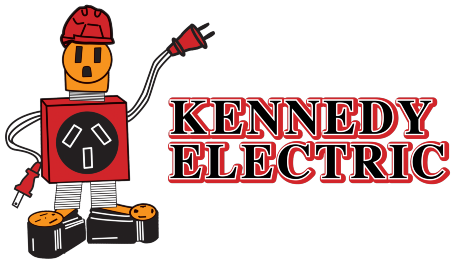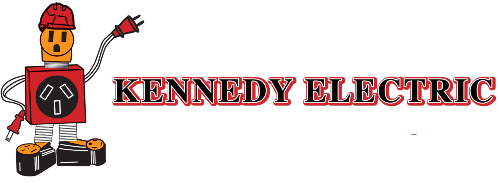Understanding Different Types of Outlets
Some outlets are designed to serve a specific purpose and are more suitable for particular locations.
Let’s be honest—electrical outlets don’t get the credit they deserve. They’re the silent partners of modern life, powering everything from your morning coffee to your evening Netflix marathon. But when it comes to outlets, one size definitely doesn’t fit all. There are many kinds of electrical outlets, each designed with a unique purpose, safety feature, or convenience in mind.
Understanding different outlet types helps you choose the right option for every area of your home, keeping everything powered safely and efficiently.
Why Outlet Selection Matters
Choosing the right outlet goes far beyond aesthetics or plug compatibility. The right outlet protects your home from electrical hazards, extends appliance life, and keeps you compliant with local and national codes. The National Electrical Code (NEC) updates safety standards regularly to keep pace with new technology, verifying that every convenience outlet and installation meets modern electrical demands.
Selecting the wrong type can lead to overloaded circuits, frequent tripping, or worse—potential electrical fires. That’s why professional electricians carefully match outlet types to each location’s purpose, verifying safety, reliability, and long-term performance.
The Classic Duo: 15-Amp and 20-Amp Outlets
Among all electrical outlet types, two dominate U.S. homes—the 15-amp and 20-amp outlets. These are the standard outlets you’ll find in living rooms, bedrooms, and kitchens.
15-Amp Outlets: the Everyday Essential
This is the most common convenience outlet, found in nearly every room of the house. It’s designed for smaller appliances and devices such as lamps, phone chargers, and TVs. The 15-amp outlet features two vertical slots and a round grounding hole, suitable for 120-volt systems.
However, this type of outlet isn’t built for heavy-duty appliances. Plugging in high-wattage devices, like a space heater or air fryer, can overload the circuit and cause breaker trips. It’s ideal for general use, but not for appliances that draw significant power.
20-Amp Outlets: the Powerhouse
When more current is required, the 20-amp outlet provides additional power. It looks similar to its 15-amp cousin, except for one distinguishing feature—a horizontal T-slot. This slot allows specific high-powered appliances, such as blenders, microwaves, and washing machines, to plug in safely.
These outlets are wired with thicker 12-gauge wire, capable of handling greater loads. You’ll often find them in kitchens, garages, and laundry rooms. Professional electricians install 20-amp outlets where higher current draw is expected to avoid circuit overloads and maintain consistent performance.
GFCI Outlets: the Safety Guards
When moisture enters the picture, GFCI (Ground Fault Circuit Interrupter) outlets become essential. Required by electrical code in bathrooms, kitchens, laundry areas, and outdoor spaces, these outlets protect against electrical shock by monitoring current flow.
If even a small amount of current leaks outside its standard path—say, through water or a person—the GFCI cuts power instantly. You’ll recognize them by their TEST and RESET buttons. Modern codes now require GFCI protection wherever water and electricity may meet, offering life-saving protection.
AFCI Outlets: Preventing Electrical Fires
While GFCIs protect against shock, AFCI (Arc Fault Circuit Interrupter) outlets guard against fire. They detect arcing faults, which occur when damaged wires or loose connections cause sparks. These tiny arcs can generate intense heat—enough to ignite surrounding materials.
AFCI outlets are now mandatory in many areas of the home, including bedrooms, living rooms, and laundry spaces. Their role is critical yet straightforward: stop dangerous arcs before they turn into fires.
Tamper-Resistant Outlets: Family-Friendly Protection
If you have children, tamper-resistant outlets are a must. These outlets feature built-in shutters that prevent foreign objects—like keys or paperclips—from being inserted. The shutters only open when a proper plug is inserted, keeping curious little hands safe.
Now required in new construction and remodels, tamper-resistant outlets offer the same function as standard outlets but with an added layer of child protection.
USB Outlets: a Modern Convenience
As technology evolves, so do outlets. USB outlets are a popular addition in modern homes, eliminating the need for bulky adapters. These outlets include built-in USB ports, allowing direct charging for phones, tablets, and other devices.
They’re perfect for home offices, bedrooms, and kitchens, freeing up the main plugs for other uses. Professional electricians can retrofit existing standard outlets with USB models to keep your space organized and efficient.
Smart Outlets: Control at Your Fingertips
Smart outlets bring automation and convenience together. These power outlet types can be controlled via smartphone apps or voice assistants, making it easy to schedule devices, monitor energy usage, or turn off forgotten appliances remotely.
Homeowners love smart outlets for energy efficiency and safety—they help prevent phantom power drain and let you shut off devices when you’re not home. They’re handy for managing lighting, coffee makers, or entertainment systems.
Combination Outlets: Multifunctional Marvels
Combination outlets combine two functions in one device, such as a switch and plug, or even a nightlight and plug. They’re ideal in spaces where wall real estate is limited, like bathrooms or hallways.
Electricians install these to simplify setups—allowing one fixture to control another with the same wiring footprint. It’s a small upgrade that can make everyday life more convenient.
Recessed Outlets: Sleek and Space-Saving
Recessed outlets are designed for homeowners who value aesthetics and functionality. Set deeper into the wall, these outlets let furniture sit flush against the surface without bending cords. They’re ideal behind TVs, couches, or kitchen counters, providing a clean, streamlined look while protecting plugs from damage.
Heavy-Duty and Specialty Outlets
Some appliances require far more power than standard outlets can provide. Large equipment—like electric dryers, stoves, or HVAC units—needs 240-volt outlets. These heavy-duty outlets are built to handle high wattage safely, with distinctive shapes that prevent incorrect plug connections.
Professional electricians carefully size and install these outlets to match the appliance’s load requirements, guaranteeing safety and compliance with NEC standards.
International Outlet and Plug Types
Traveling or importing appliances? You’ll quickly learn that there are many different types of plugs around the world. Countries use varying shapes, sizes, and voltage levels. For example, Type A and B outlets are standard in the U.S., while the U.K. uses Type G outlets with built-in fuses.
Always check voltage compatibility before using foreign appliances. Plugging a 120-volt device into a 240-volt socket without a converter can instantly destroy the device. A universal adapter is a traveler’s best friend.
A Word About Two-Prong Outlets
If your house still has two-prong outlets, it’s time for an upgrade. These older outlets lack a grounding connection, leaving your devices—and your family—vulnerable to electrical faults. Modern three-prong grounded outlets provide essential protection against shocks and surges. Upgrading these outlets is one of the simplest ways to enhance safety and compliance.
How to Choose the Right Outlet for Every Space
Each area of your home has unique electrical needs, and understanding which outlet type fits best keeps everything running safely.
Bedrooms and living rooms: Standard 15-amp or 20-amp outlets with AFCI protection.
Kitchens: GFCI-protected 20-amp outlets for appliances and countertop areas.
Bathrooms: GFCI outlets only, plus combination options for lights and fans.
Garages: 20-amp outlets with GFCI protection and possible heavy-duty outlets for equipment.
Children’s rooms: Tamper-resistant outlets for safety.
Home offices: USB and smart outlets for charging and automation.
Behind furniture: Recessed outlets for a tidy, modern appearance.
When in Doubt, Consult a Professional
Electrical work isn’t a place to experiment. Selecting and installing the correct outlet types requires professional experience and knowledge of both NEC and local codes. A licensed electrician can assess your home’s wiring, recommend upgrades, and install outlets safely and correctly.
The right electrician ensures every outlet—from standard outlets to smart systems—is properly grounded, appropriately rated, and installed to last. Professional installation also helps avoid costly damage or code violations during inspections.
Key Takeaways: Making the Most of Modern Outlet Options
Electrical outlets are more than just wall fixtures—they’re vital to how your home functions every day. The correct outlet type improves convenience, energy efficiency, and safety.
Here are the key takeaways to remember:
Use 15-amp and 20-amp outlets appropriately based on electrical load.
Install GFCI outlets near water to prevent shocks and electrocution.
Choose AFCI outlets to minimize fire risks from electrical arcing.
Upgrade old two-prong outlets to grounded three-prong models.
Add tamper-resistant outlets in children’s areas for extra protection.
Consider USB or smart outlets for modern living convenience.
Use recessed outlets for furniture-heavy spaces to prevent cord damage.
Always consult a licensed electrician for upgrades or new installations.
By understanding the different types of outlets and their intended uses, homeowners can maintain a safer, more efficient, and tech-ready environment. Whether you’re renovating, upgrading, or building new, professional guidance ensures that every plug, switch, and circuit works precisely as it should.
FAQs
What are the most common types of electrical outlets found in homes?
The most common are 15-amp and 20-amp standard outlets, GFCI outlets, AFCI outlets, and tamper-resistant outlets.
Where should GFCI outlets be installed?
They should be installed anywhere moisture is present, including bathrooms, kitchens, garages, basements, and outdoor areas.
What’s the difference between 15-amp and 20-amp outlets?
15-amp outlets power smaller devices, while 20-amp outlets handle heavier appliances like microwaves or washers.
Are two-prong outlets still safe to use?
No. Two-prong outlets lack grounding, which can increase the risk of shock or electrical fire. Upgrading to three-prong outlets is recommended.
What are the benefits of tamper-resistant outlets?
They prevent children from inserting objects into outlets, reducing the risk of electrical injury.
Can I replace a standard outlet with a USB outlet?
Yes, but it’s best handled by a professional to ensure proper wiring and voltage compatibility.
What are the advantages of smart outlets?
Smart outlets let you control power remotely, schedule devices, and track energy usage for better efficiency.
When should I use a 240-volt outlet?
Use 240-volt outlets for large appliances like dryers, ovens, and HVAC systems that require higher current.
Are all outlets interchangeable?
No. Different outlet types serve unique purposes. Installing the wrong one can create electrical hazards or code violations.
Why should I hire a professional electrician to install outlets?
A licensed electrician ensures proper wiring, grounding, and compliance with NEC and local codes—protecting both your home and your investment.
Kennedy Electric is a reliable full-service electrical company serving residential and commercial customers in Citrus, Hernando, and Pasco Counties. We offer electrical repairs, boat lift wiring, remodels, low voltage lighting, generator hookups, RV power, electrical inspections, fan installation, home lighting, new circuits, panels, and more.


